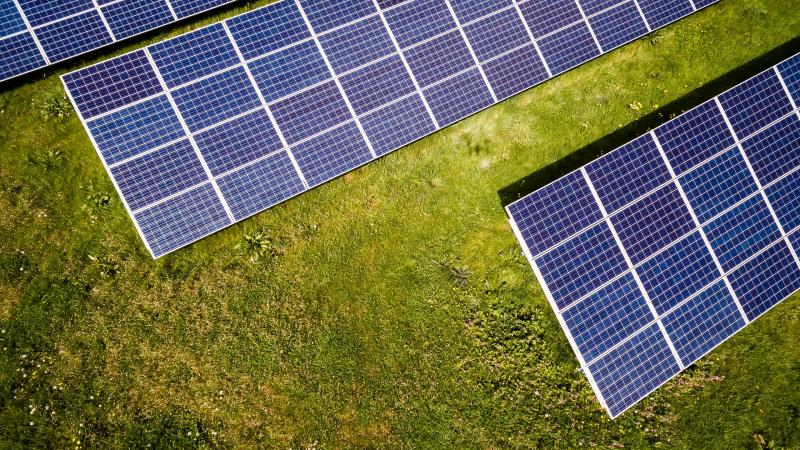The renewable sector's dirty secret is that it is one of the worst performing on protecting community and worker rights. Eniko Horvath of the Business & Human Rights Resource Centre gives five steps for companies to ensure their projects are as clean as the power they produce
Renewable energy is key for our transition to a low-carbon economy. Increased investment into the sector is also essential to meet our climate and energy-access ambitions set out in the Paris Agreement and the Sustainable Development Goals.
At the same time, renewable energy is also the sector with the third most frequent allegations of attacks and intimidation of human rights defenders worldwide, behind mining and agribusiness. Just this year, community members affected by renewable energy projects in Guatemala, Mexico, Kenya and beyond have faced displacement, intimidation and threats, open fire, and even killings.
Failure to respect human rights can result in project delays, financial damages and legal costs to companies and investors
These cases found many unprepared: who would expect a “clean and green” project to harm to people’s lives? Certainly not most companies and investors. Just like any other business, renewable energy companies have a responsibility to respect human rights under the UN Guiding Principles on Business and Human Rights. However, out of 59 solar, bio-energy and geothermal companies analyzed in our new report, only five meet basic criteria to protect communities’ and workers’ rights. Close to half of all companies we studied did not have in place any policies or practices on human rights. This echoes previous findings in the wind and hydropower sectors.
Yet, it is squarely in the interest of companies and investors to be prepared – not only to protect people but also their own projects and our transition to a low-carbon economy. Failure to respect human rights can result in project delays, financial damages and legal costs to companies and investors. Examples of these costs from the extractives sector abound and are also starting to crop up among renewable energy companies. This July, the International Court of Arbitration dismissed a lawsuit by Kinangop Wind Park Limited claiming Sh31 billion ($308 million) in damages due to its project’s cancellation in Kenya following community opposition.

Companies have an opportunity to learn from these mistakes and can take the following steps to ensure their operations respect human rights:
1 Adopt human rights policies and practices: As a first step, all renewable energy companies can and should adopt human rights policies and due diligence practices in line with the UN Guiding Principles on Business and Human Rights. This includes developing a human rights policy approved by the board as well as putting in place a process to assess and act on human rights impacts, track responses, and communicate about how impacts are addressed.
2. Involve communities and workers: Ensure communities and workers are engaged continuously throughout all steps of a project’s development. This is especially important when undertaking human rights impact assessments and in the design and monitoring of grievance mechanisms. Meaningful engagement of individuals and groups that could be affected by a project at an early stage will not only give companies insight into how to best address and prevent human rights concerns, but will also help strengthen companies’ social license to operate. Without the social license, companies can risk project delays, cancellations, and legal costs.
3. Provide access to remedy when harms occur: Introduce grievance mechanisms in line with the UN Guiding Principles on Business and Human Rights’ effectiveness criteria, designed and monitored with communities and workers. When designed and implemented effectively, grievance mechanisms can serve to address human rights concerns at an early stage before they develop into legal or quasi-legal claims.
Companies can communicate their expectations clearly by including human rights clauses in agreements with suppliers and contractors
4. Make expectations clear for business partners and suppliers: Whether your company is a wind turbine provider, solar farm operator, or an ethanol refiner, adopting systems to identify and monitor supply chains for human rights impacts is key. One of the ways companies can communicate their expectations clearly is by including human rights clauses in other agreements with suppliers, business partners, and contractors. Around security provisions, companies can draw on the experience of the extractives sector and integrate human rights as per the Voluntary Principles on Security and Human Rights.
5. Raise the bar among peers: Companies are already starting to step up. Last month, utility company Enel and wind energy company Orsted committed to respecting fundamental rights of workers in all their operations as part of a new Pledge for a Just Transition to Decent Jobs. In turn, renewable energy buyers Unilever, Safaricom and Autodesk committed to only buy renewable energy that respects fundamental rights of workers. It is time for more companies to follow their lead.
Renewable energy holds the promise of a cleaner, climate-friendly future. This is the time to show that it will also be a rights-respecting one.

Eniko Horvath is a senior researcher at the Business & Human Rights Resource Centre

